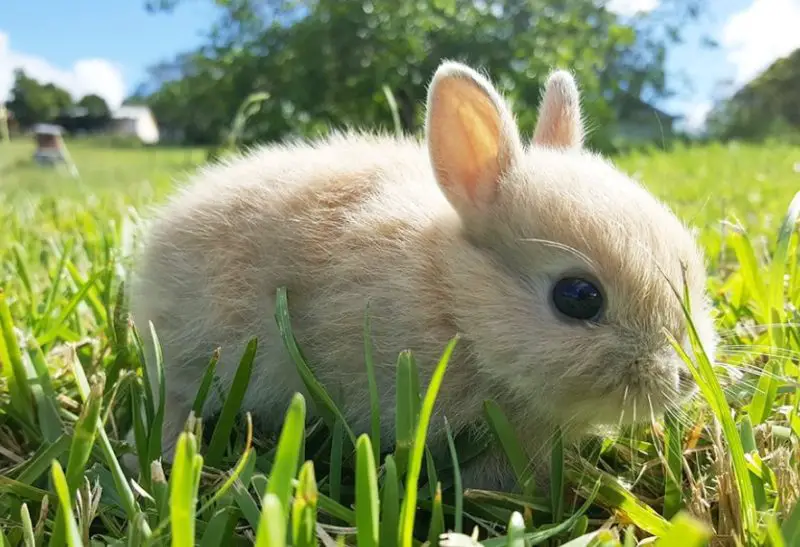Rabbits are adorable, fluffy creatures that make great pets. However, taking care of a rabbit requires more than just a cozy hutch. A balanced diet is essential for their overall health, growth, and well-being. If you’re a new rabbit owner or just curious about what rabbits eat, this complete guide will provide you with everything you need to know.
Understanding a rabbit’s dietary needs is crucial to ensuring they stay healthy, active, and happy. This guide will explore what rabbits eat, what foods to avoid, and how to create a balanced meal plan for your furry friend.
Natural Diet of Wild Rabbits
In the wild, rabbits have access to a wide variety of natural food sources. Understanding what wild rabbits eat can give us insights into what domesticated rabbits need.
What Do Wild Rabbits Eat?

Wild rabbits consume a diet that is rich in fiber and low in fat and sugar. Their primary food sources include:
- Grasses and Hay: Wild rabbits graze on different types of grasses and wild hay, which provide essential fiber.
- Leafy Greens: They eat leaves, clover, and other leafy green plants found in their natural habitat.
- Bark and Twigs: In colder months when greenery is scarce, wild rabbits chew on bark, twigs, and branches for sustenance.
- Roots and Weeds: Rabbits dig up and consume roots and weeds, which offer extra nutrients.
Wild rabbits have a diverse diet, allowing them to meet their nutritional needs from a variety of natural sources. This serves as a foundation for understanding what domestic rabbits should eat.
Essential Components of a Domestic Rabbit’s Diet
To keep your pet rabbit healthy, you need to ensure it has a diet similar to that of its wild counterparts. The following components are essential for a rabbit’s health and well-being.
Hay – The Foundation of a Rabbit’s Diet
Hay is the single most important part of a rabbit’s diet, making up about 80-90% of their daily intake. It provides essential fiber that aids in digestion and prevents gastrointestinal issues.
Types of Hay Suitable for Rabbits
- Timothy Hay: The most recommended hay for adult rabbits due to its balanced fiber, protein, and calcium content.
- Orchard Grass Hay: Softer than timothy hay, it’s a great option for picky rabbits.
- Meadow Hay: A mixed blend of grasses, offering variety in texture and flavor.
- Alfalfa Hay: Suitable for baby rabbits and pregnant or nursing mothers but should be avoided for adult rabbits as it contains higher calcium and protein.
Ensure your rabbit always has unlimited access to fresh, clean hay. Replace any hay that becomes wet or dirty.
Fresh Vegetables – Daily Greens for Rabbits
Vegetables play a crucial role in a rabbit’s diet. They provide essential vitamins and minerals that hay alone cannot supply.
Best Vegetables for Rabbits
- Leafy Greens: Romaine lettuce, cilantro, basil, parsley, dandelion greens, and kale (in moderation) are great choices.
- Non-Leafy Veggies: Carrots (in moderation), bell peppers, broccoli (leaves and stems), and zucchini are good options.
Avoid feeding rabbits iceberg lettuce, as it has little nutritional value and may upset their stomachs. Introduce new vegetables slowly to prevent digestive issues.
Fresh Fruits – Occasional Treats
While fruits are tasty treats for rabbits, they should be given sparingly due to their high sugar content.
Safe Fruits for Rabbits (Occasional Use)
- Apples (without seeds)
- Blueberries
- Strawberries
- Bananas (in small amounts)
- Watermelon (no seeds)
Limit fruit intake to 1-2 tablespoons per 5 pounds of rabbit body weight, a few times per week.
Pellets – Supplemental Nutrition
Commercial rabbit pellets are a convenient way to ensure your rabbit gets the nutrients they need. However, they should only make up about 5-10% of your rabbit’s diet.
What to Look for in Rabbit Pellets
- High Fiber: Look for pellets with at least 18-22% fiber content.
- Low Sugar: Avoid pellets with seeds, dried fruits, or colorful bits, as these add unnecessary sugar.
Feed your rabbit 1/4 cup of pellets per 5 pounds of body weight daily, and adjust based on its activity level and age.
Water – Essential for Hydration
Fresh, clean water should be available to your rabbit at all times. Water can be provided in a water bowl or a sipper bottle. Check and refill daily to ensure it’s fresh and clean.
Foods to Avoid for Rabbits
Certain foods are harmful to rabbits and should be avoided at all costs. Feeding rabbits the wrong food can lead to severe health issues, such as gastrointestinal stasis or toxicity.
Toxic Foods for Rabbits
- Chocolate: Contains theobromine, which is toxic to rabbits.
- Avocado: Contains persin, which can be fatal to rabbits.
- Onions and Garlic: Can cause blood disorders in rabbits.
- Processed Human Foods: Chips, crackers, bread, pasta, and sweets are not suitable for rabbits.
- Rhubarb: Highly toxic to rabbits.
If you suspect your rabbit has eaten something toxic, contact a veterinarian immediately.
Feeding Schedule for Rabbits
Creating a feeding schedule for your rabbit helps maintain a healthy digestive system and keeps them happy.
Daily Feeding Routine
- Morning: Replenish hay and fresh water. Provide a small portion of pellets.
- Afternoon: Offer fresh vegetables as a mid-day snack.
- Evening: Check hay supply and water, ensuring both are clean and plentiful.
Having a consistent feeding schedule ensures your rabbit stays active and healthy. Avoid overfeeding pellets and fruits, as they can lead to weight gain.
Common Questions About Rabbit Diets
How Often Should I Feed My Rabbit?
Rabbits should have access to unlimited hay and fresh water 24/7. Fresh vegetables and pellets should be given once or twice a day in moderation.
Can Rabbits Eat Grass From the Yard?
Yes, but only if it is free from pesticides, herbicides, and other chemicals. Fresh, untreated grass is a great addition to a rabbit’s diet.
How Do I Know If My Rabbit’s Diet Is Healthy?
A healthy rabbit will have firm, round droppings and maintain an active, playful attitude. If you notice changes in your rabbit’s poop or behavior, its diet may need adjustment.
Conclusion
Providing your rabbit with a balanced, nutritious diet is essential for its health and well-being. The foundation of a rabbit’s diet is hay, supplemented with fresh vegetables, a small amount of pellets, and occasional fruit treats. Avoid feeding rabbits harmful foods, and always ensure they have access to fresh water.
By following this guide, you’ll be able to meet your rabbit’s dietary needs, keeping them healthy, happy, and full of energy. If you have any concerns about your rabbit’s diet, consult with a veterinarian who specializes in small animals.
A well-fed rabbit is a happy rabbit! Take the time to understand your rabbit’s nutritional needs, and you’ll be rewarded with a healthy, active, and affectionate companion.






